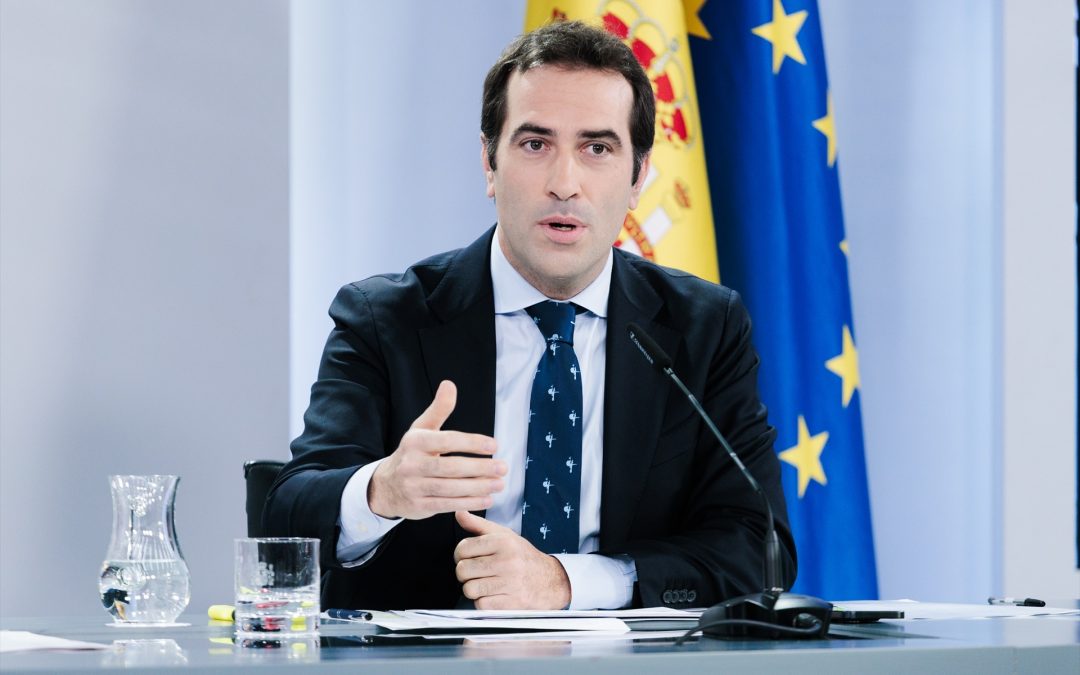“`html
Brussels – The Minister of Economy, Trade and Enterprise of the Government of Spain, Carlos Cuerpo, announced this Tuesday that the government will present a reform of the recovery and resilience plan to the European Commission by the end of the year to address the reconstruction of the economy in view of the damage caused by DANA, which has left more than 200 dead in the east and south of the country, most of them in the province of Valencia.
This was stated by Cuerpo in statements to the media in Brussels after a meeting with the Commissioner for Cohesion and Reforms, Elisa Ferreira, followed by meetings with the Commission’s economic vice-president, Valdis Dombrovskis; the Budget and Administration Commissioner, Johannes Hahn, and the Secretary General of the European Commission, Ilze Juhansone.
Cuerpo‘s announcement came a few hours before the European Parliament’s examination of the third vice-president of the Government of Spain, Teresa Ribera, as a candidate for the executive vice-presidency of Clean, Fair and Competitive Transition and the Competition portfolio, with her management of DANA in the focus of the Popular Party, which in recent days has raised its tone against the minister, accusing her of inaction and being more focused on preparing for the exam in Brussels than on her ministry’s activity.
Cuerpo stressed that the government is “fully dedicated” to repairing the damage caused by the “catastrophe” of DANA, which is why the Executive’s immediate response has been two aid packages of 14.4 billion euros, although it is aware that much more will have to be done in the reconstruction.
Spain has already requested the Solidarity Fund aid from the European Commission and has asked the Council and the European Parliament for urgent approval of a new regulation called ‘Restore’, which will allow the country to reprogram the cohesion funds of Feder and FSE+ to dedicate part of these resources to alleviating the damage caused by natural disasters.
“All elements of solidarity must be utilized,” defended the minister, who announced that Brussels will be asked for a reform of the crisis fund to allow the addition of a chapter for the repair of damage caused by DANA and hopes to present it before the end of the year.
The regulations foresee that capitals present reforms of the plan based on a justification arising from unforeseen circumstances, a clause previously utilized by the governments of Croatia, Slovenia or Greece, also to address damage caused by natural disasters.
Additionally, the government can request funds from the European Solidarity Fund, although it must do so within 12 weeks from the date of the first damage caused by the catastrophe, although Cuerpo is confident of having an estimate “well before”.
“It’s too early to have an idea of the total amount that will be required from these instruments,” explained the minister, something he guarantees is being worked on technically to “shorten the timelines to the maximum”.
Asked about the fiscal impact of these measures, Cuerpo recalled that the expenses reflecting the EU fund subsidies are neutral in terms of the deficit and are excluded from net spending growth, so their use to address this natural disaster will not negatively affect Spain’s fiscal situation. (November 12)
“`
 go to the original language article
go to the original language article
